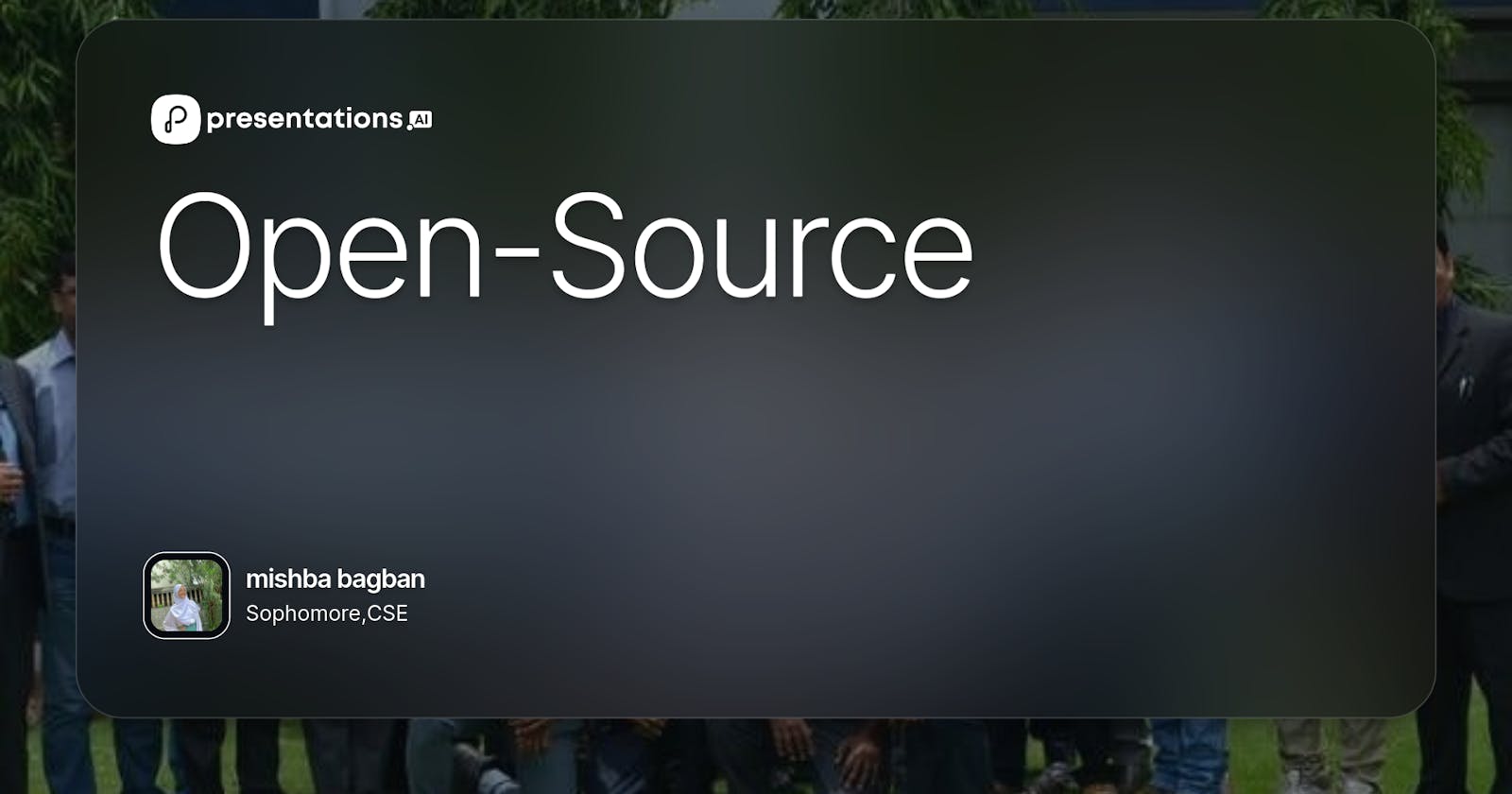Hello, wonderful audience! I'm thrilled to share my journey of giving my first open-source talk.
Let's dive into the presentation I've prepared for the talk. To start, I introduced the community, and its goals, and shared a bit about myself. Now, without any delay, let's jump right in!
Agenda
I've outlined the agenda to give them a clear roadmap of what I'll be covering, so they will know exactly what to expect as I guide them through
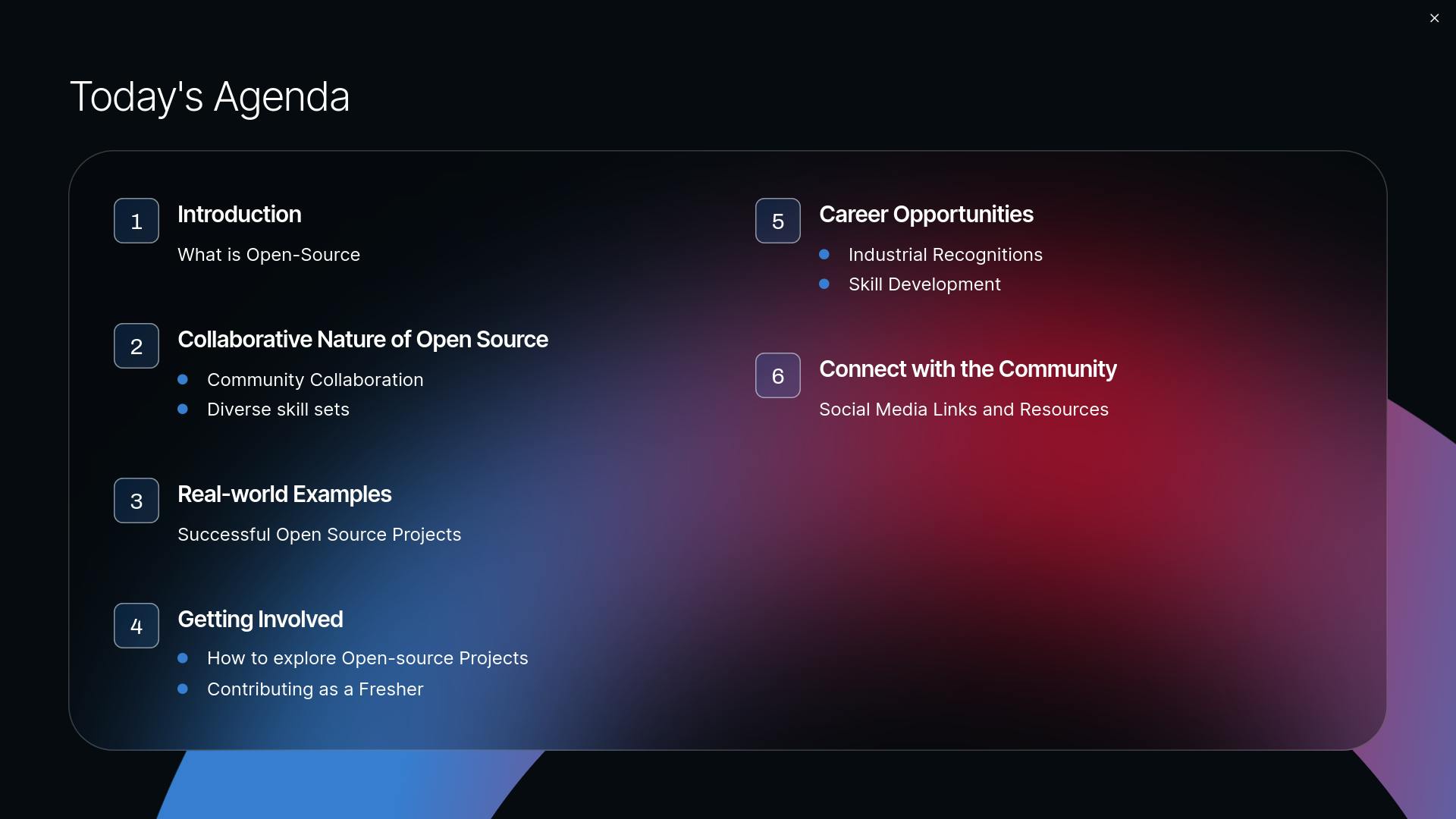
Open-source unleashed
I've discussed open source and its advantages, highlighting how it offers abundant opportunities and practical experience through real-world projects. Additionally, I shared examples of well-known projects like Linux, Vscode, and WordPress to illustrate these points.
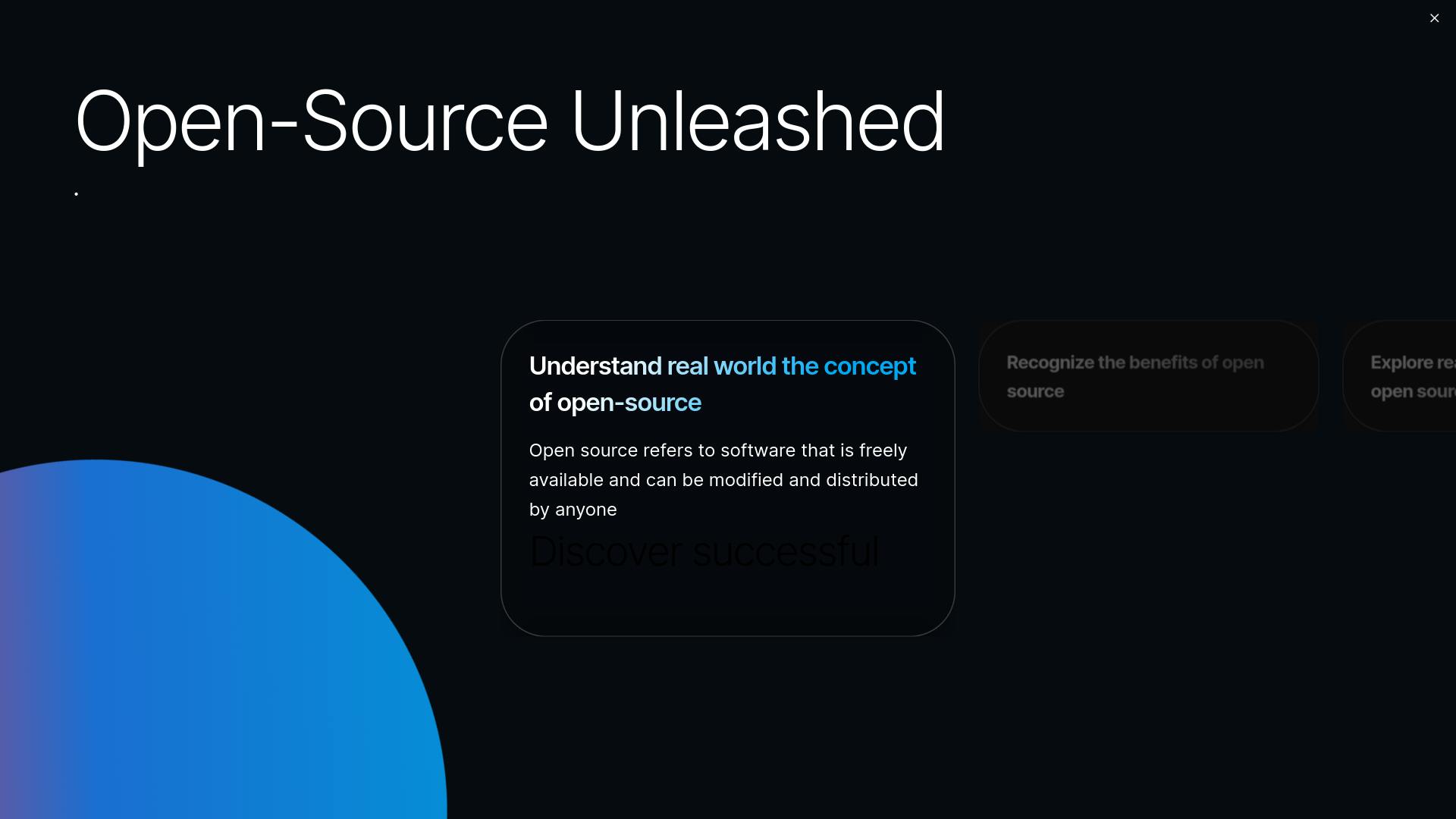
Community and Diversity
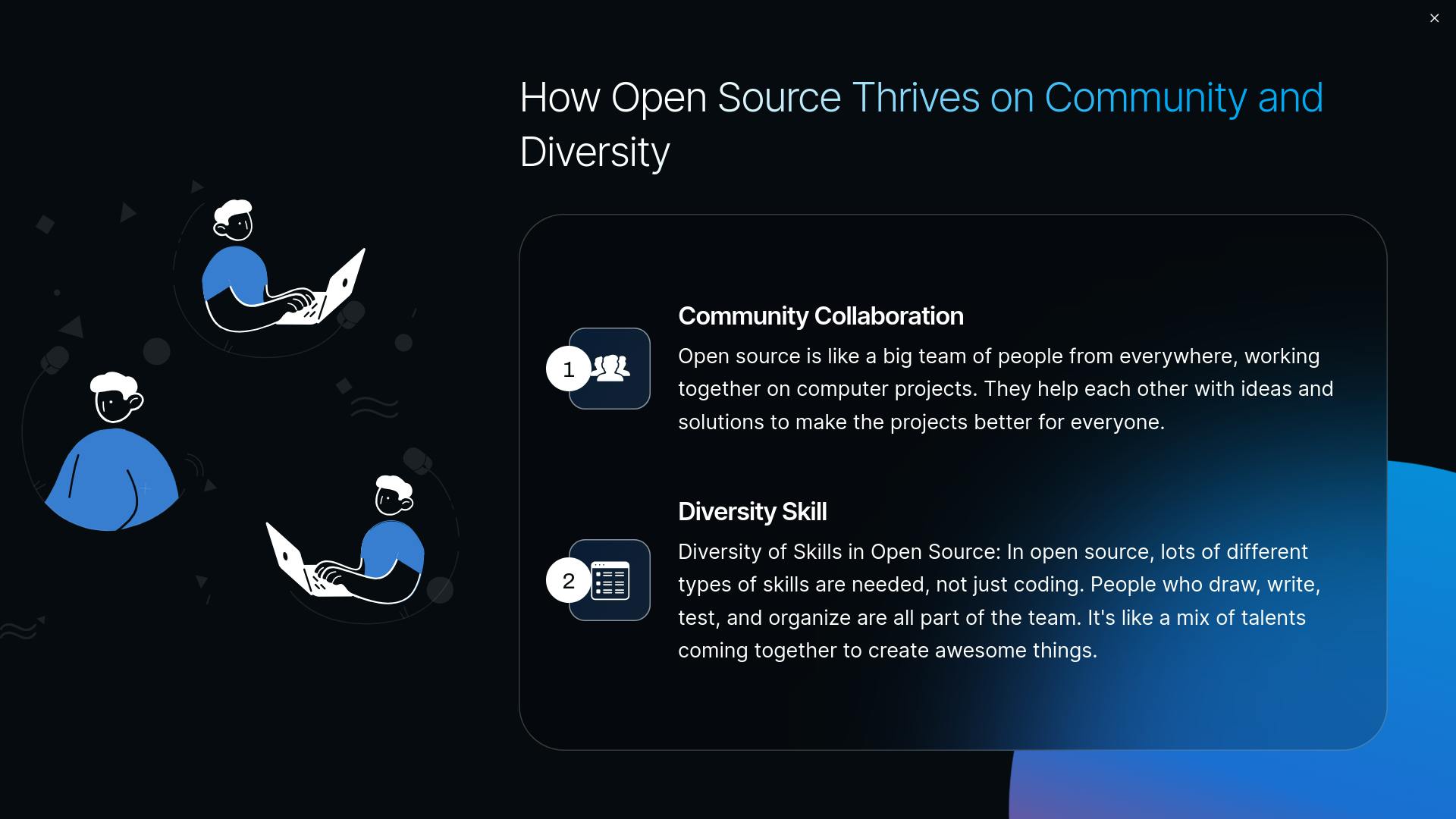
The vitality of open-source projects hinges on the presence of a thriving community. The community forms the cornerstone of open-source endeavors, acting as a crucial catalyst. Whenever one encounters an obstacle, seeking assistance from this community is always an option. Every individual within the community possesses a unique skill set that can be harnessed to enrich the project. Moreover, the opportunity for global collaboration among developers is a defining feature, transcending geographical boundaries.
Real-World Examples
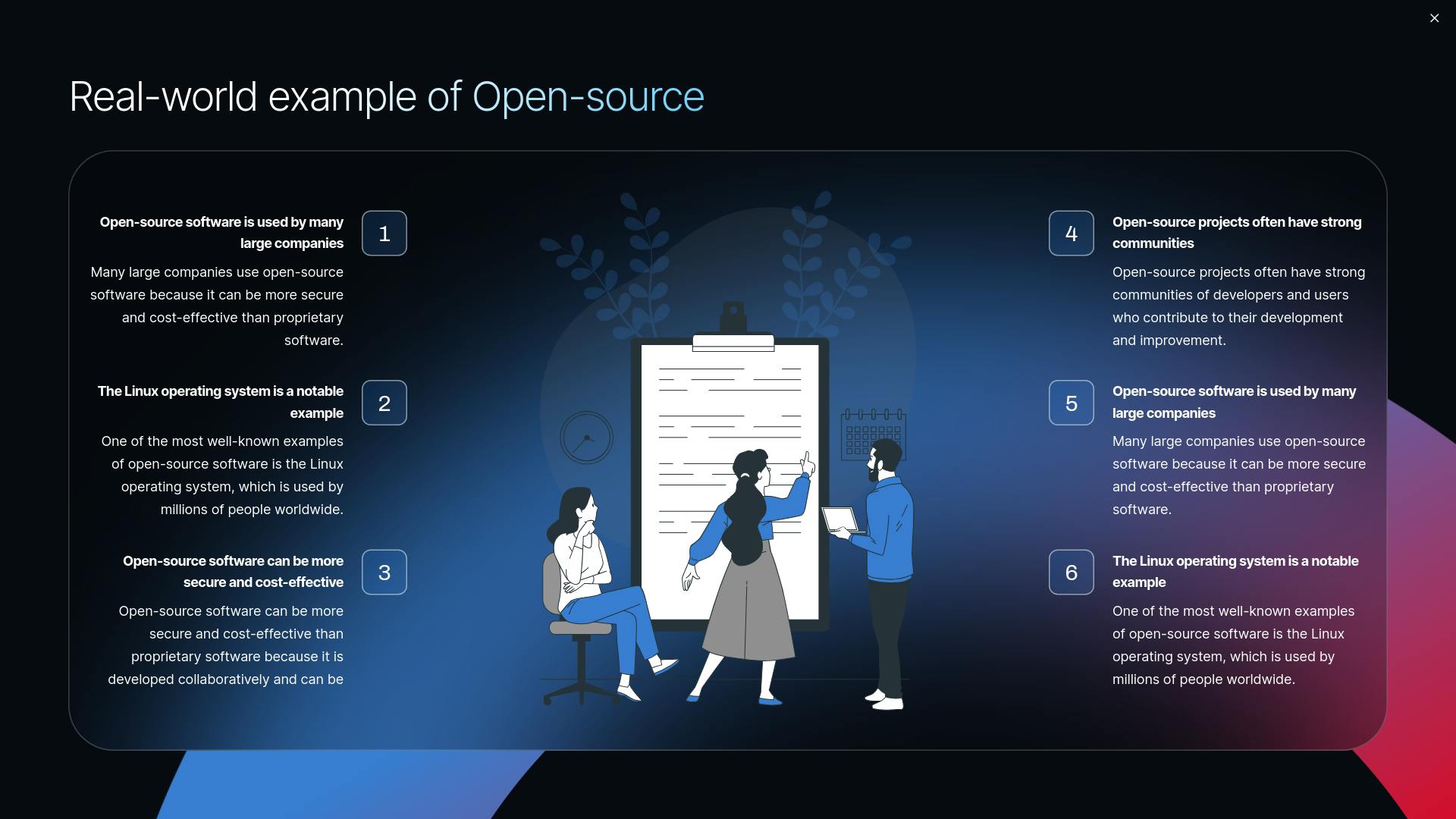
I intended to offer them a sneak peek into real-world projects that we've been using in our everyday lives, like VLC Media Player, Linux, Blender, Mozilla Firefox, and more.
Where you can find the community?
In the presentation slide, I've highlighted four avenues for locating the community. These include platforms like Twitter, where social media engagement thrives. Additionally, you can establish connections through local meetups, fostering in-person relationships. Moreover, online communities provide another means of interaction, and industry conferences serve as yet another opportunity to engage with the community.
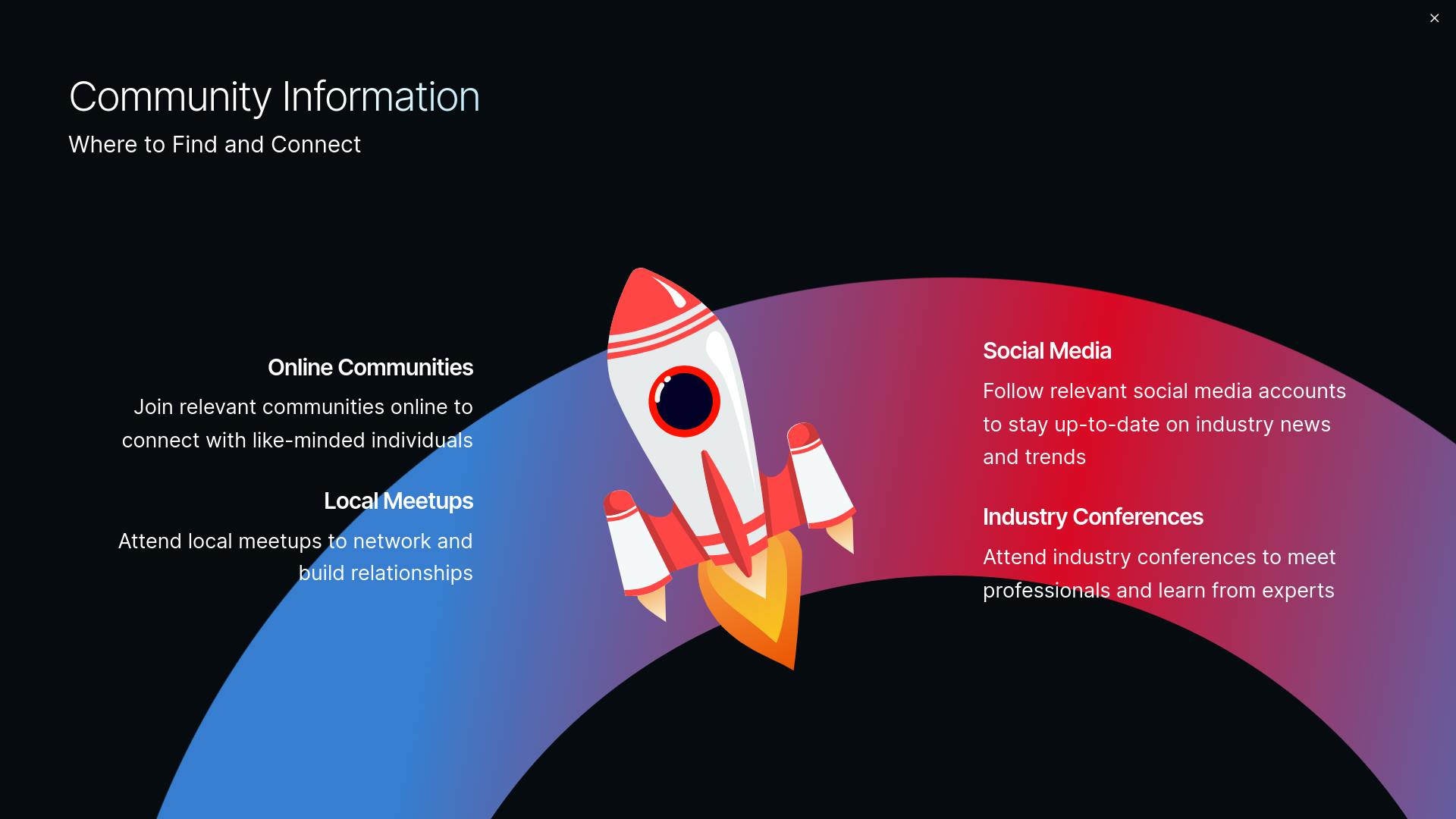
Getting involved in open-source as a Fresher
During my early days as a beginner, the world of open-source seemed complex and bewildering. Git version control and GitHub's user interface were unfamiliar territories, and I felt daunted by their intricacies. I delved into numerous tutorials in an attempt to comprehend GitHub's UI. Eventually, I stumbled upon a video by Kunal Kushwaha on Git and GitHub, which presented the content in a clear and accessible manner.
However, grasping the concepts through videos alone wasn't enough to kickstart your journey into contributing. You need to do enough practice and must have patience. The initial stages were overwhelming, yet as you persistently engaged with the platforms, they became more intuitive. Embracing Git version control marked the pivotal first stride, it will unlock many opportunities in the future, and in the end, it will be worth it.
Following Git version control mastery, exploring "good first issues" emerged as the next step. It does not necessarily have to be a code contribution you can also start with a non-code contribution.
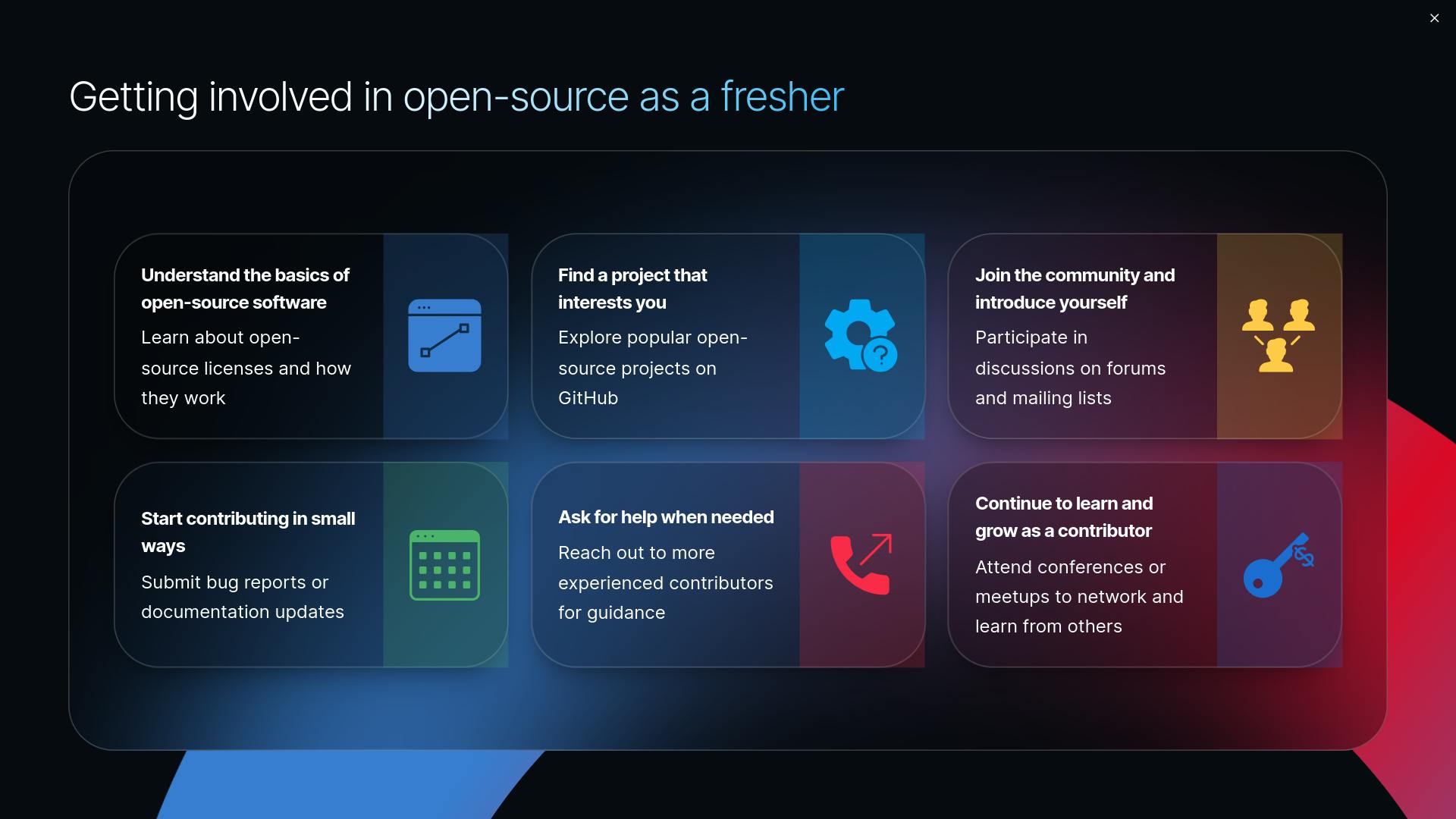
Connects with the community
I've compiled a list of fantastic and supportive communities that offer a platform to connect, learn, and seek assistance when needed.
You can locate these communities on LinkedIn and Twitter. If you're inclined towards Discord, they often have dedicated channels there. Furthermore, their individual websites provide a wealth of content to explore.
But remember, joining these communities is just the beginning. Instead of remaining passive and scrolling through posts, take a proactive step by introducing yourself and engaging with fellow members.
while a community empowers collaboration with individuals who share your interests, expanding your network in the process.
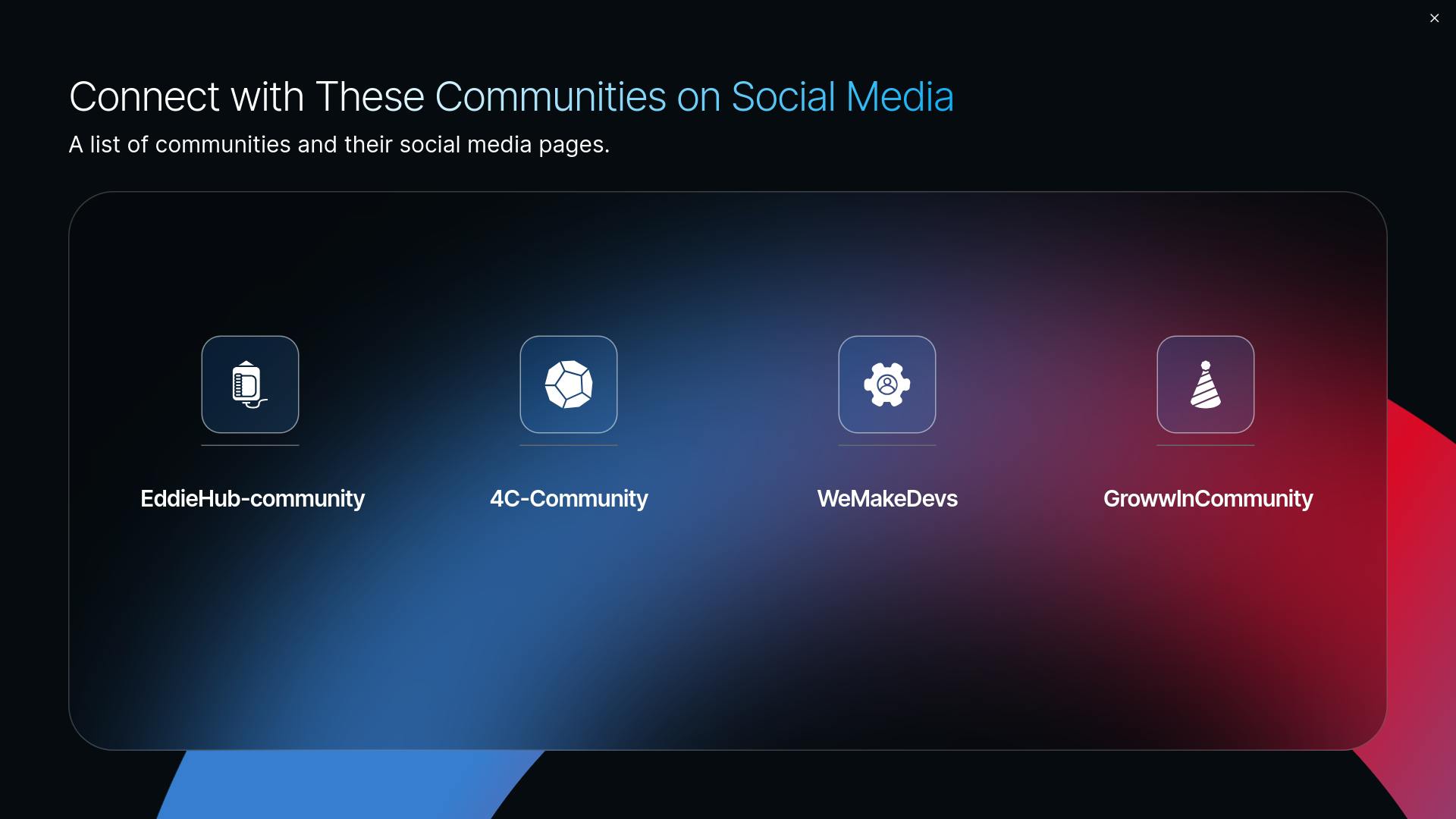
Wrapping-up
I conclude this talk by emphasizing that Open source is for everyone, and doesn't matter how small a contribution you make.
Here are some key TAKEAWAYS
embarking on contributions with smaller projects
Don't underestimate the non-code contribution
Just do not join the community but do introduce yourself
Do ask for help when needed
The power of open source is in the power of community collaboration
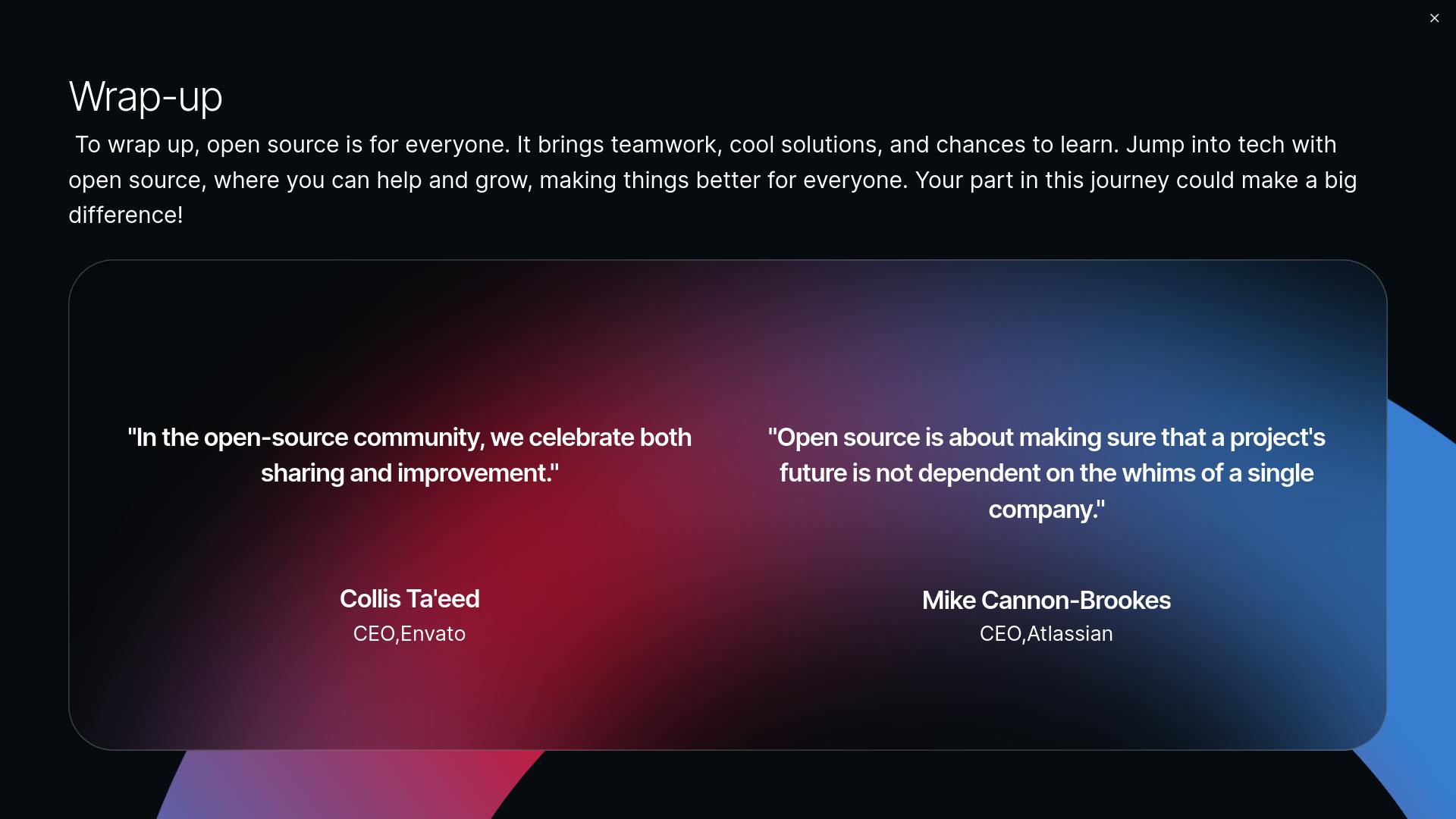
Queries
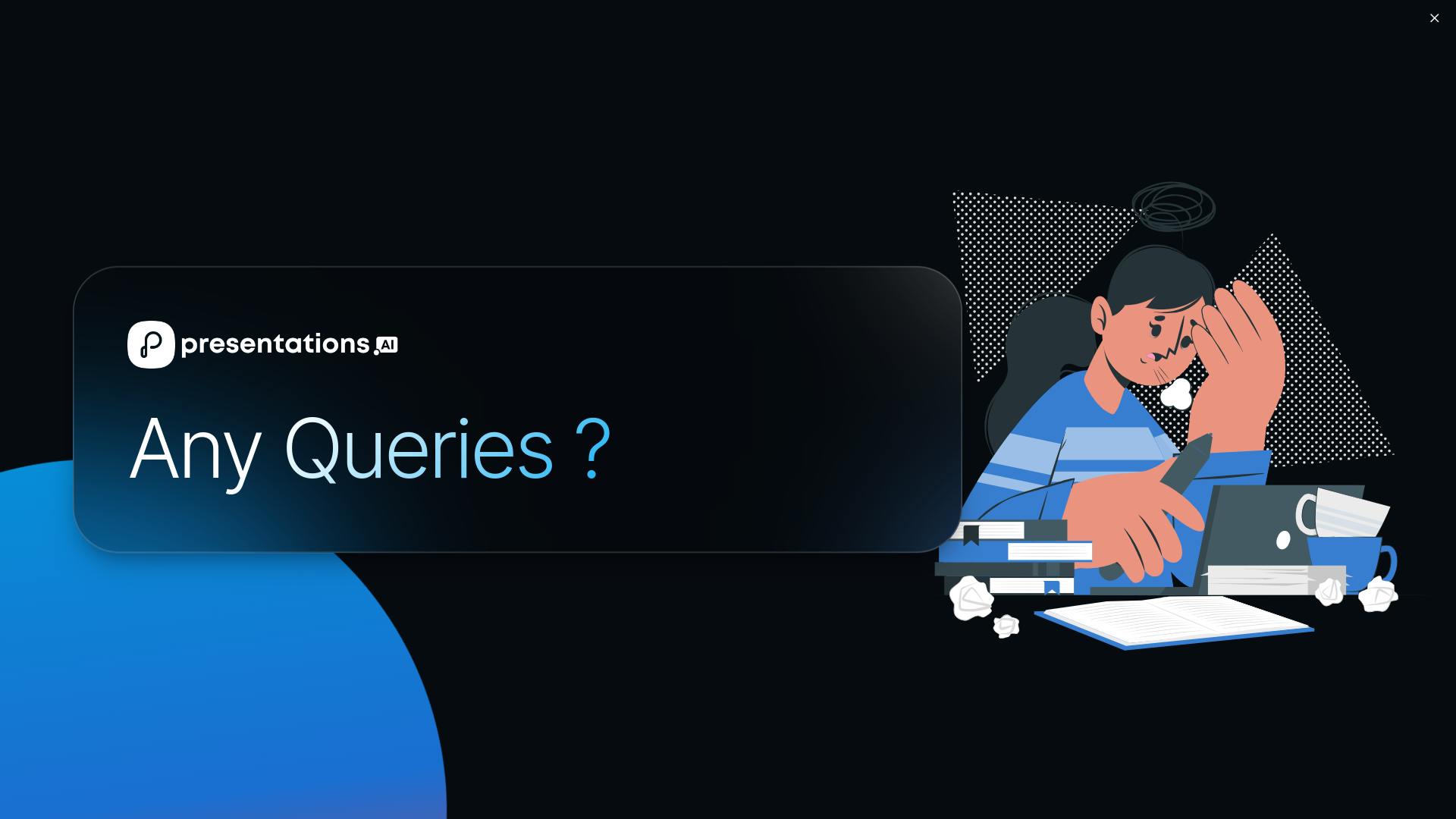
Throughout the talk, numerous hands were raised, and to facilitate further discussion, I've added a slide where attendees can ask their questions.
Here, I'll outline some of the questions raised by the audience.
What if someone will copy my code?
Why do I contribute to others' projects and what will I get in return?
Why Open-source?
If anyone can modify the code isn't it a problem?
Resources
Git and Github Tutorial by Kunal Kushwaha
Here I am listing some Project Repos links from where you can find some good first-issue
Hacktoberfest-practice and good-first-issue-finder maintained by Eddie Jaoude
Here is the link to the Blog to open your first pull requests
My First Talk Experience
It was a positive experience, witnessing many hands raised. I interacted, asked questions, and requested more discussions like this. The motivation and excitement were truly inspiring.
Thank you for reading this I hope it was valuable. I'd welcome suggestions. Feel free to share your own initial speaking experience as well, I would love to read :)

